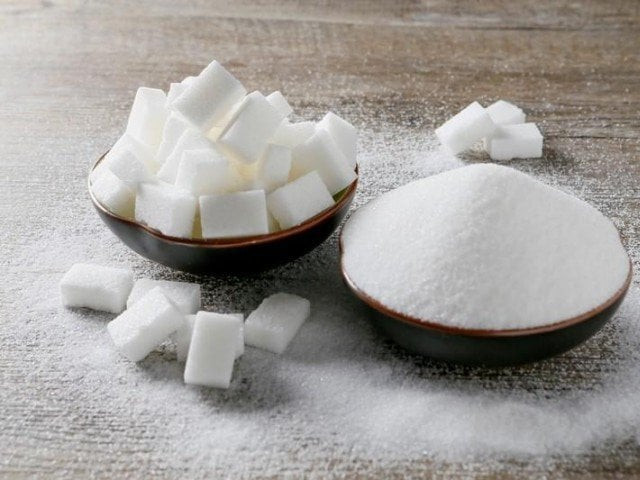'Sugar commission was biased from day one'
Mills’ counsel says govt cannot change constitution of a judicial commission once it is formed

Continuing his arguments against a sugar inquiry commission and its reports, the counsel for sugar mills on Monday told the Islamabad High Court (IHC) that the commission was biased against the sugar industry right from the very beginning due to the ‘findings’ of an earlier ad hoc committee.
The government had formed the ad hoc inquiry committee to probe into steep hike in sugar prices earlier this year. This ad hoc committee had recommended forming a commission of inquiry to investigate the causes of the crisis while also highlighting areas to be investigated.
In its preliminary report – unveiled on April 5 – the commission had claimed that sugar mills belonging to the families of the country’s top politicians including PML-N’s Shehbaz Sharif, PTI’s Jahangir Tareen and Khusro Bakhtiar, PML-Q’s Moonis Elahi and PPP’s Asif Ali Zardari were among beneficiaries of the crisis.
In its forensic report – issued on May 21 – the commission had accused the sugar mill owners of earning illegal profits to the tune of billions of rupees through unjustified price hikes, benami transactions, tax evasion, misuse of subsidy and purchasing sugarcane off the books.
“[It is true that] the reports of the sugar inquiry commission are not binding on anti-graft bodies [like National Accountability Bureau (NAB) or the Federal Investigation Agency (FIA)].
“However, they in their turn will bias these authorities as these reports have leveled blanket allegations against the sugar industry,” said Makhdoom Ali Khan, counsel for the sugar mills, while presenting arguments before an IHC bench comprising Justice Aamer Farooq and Justice Miangul Hassan Aurangzeb.
The division bench was hearing an intra-court appeal filed by the Pakistan Sugar Mills Association (PSMA) against the IHC single bench’s order which on June 20 disposed of PSMA petition challenging constitution of the commission and its reports and declared the commission legal.
Makhdoom Ali Khan reiterated the claim that the commission of inquiry had no legal standing as it was notified in the official gazette in July months after completion of its inquiry and submission of reports.
He said the March 16 notification announcing formation of the commission mentioned that it had six members but the commission’s final report had signatures of seven members.
The counsel said the inquiry commission had all the powers of a judicial commission. It was vested with the power to summon any one; to raid any place and to start contempt proceedings against anyone.
“As the inquiry commission had the powers of a judicial commission, the law governing a judicial commission will apply to it. Under these laws, the government cannot change constitution of a commission once it is formed,” he said.
He said the commission tarnished reputation of the sugar industry in general despite the fact that there are a total of 282 sugar mills in the country and the commission collected data of only ten mills.
Makhdoom Ali Khan will continue his argument today (Tuesday). The bench has also asked the counsel for sugarcane cultivators to present his arguments.
The apex court on July 14 vacated a Sindh High Court (SHC) stay order, allowing the government agencies to take action against sugar barons on basis of the sugar inquiry commission’s reports.
A three-judge bench had issued the order while hearing a federal government appeal filed against the SHC’s interim order which on June 24 restrained authorities from taking action against around 20 sugar mills of Sindh in the light of the commission’s reports.
The Supreme Court bench had, however, asked federal authorities not to take any unnecessary coercive action against sugar mills owners. It had directed the SHC and the IHC benches to decide the sugar mills owners’ petitions against the sugar inquiry commission within three weeks.


1724319076-0/Untitled-design-(5)1724319076-0-208x130.webp)
















COMMENTS
Comments are moderated and generally will be posted if they are on-topic and not abusive.
For more information, please see our Comments FAQ